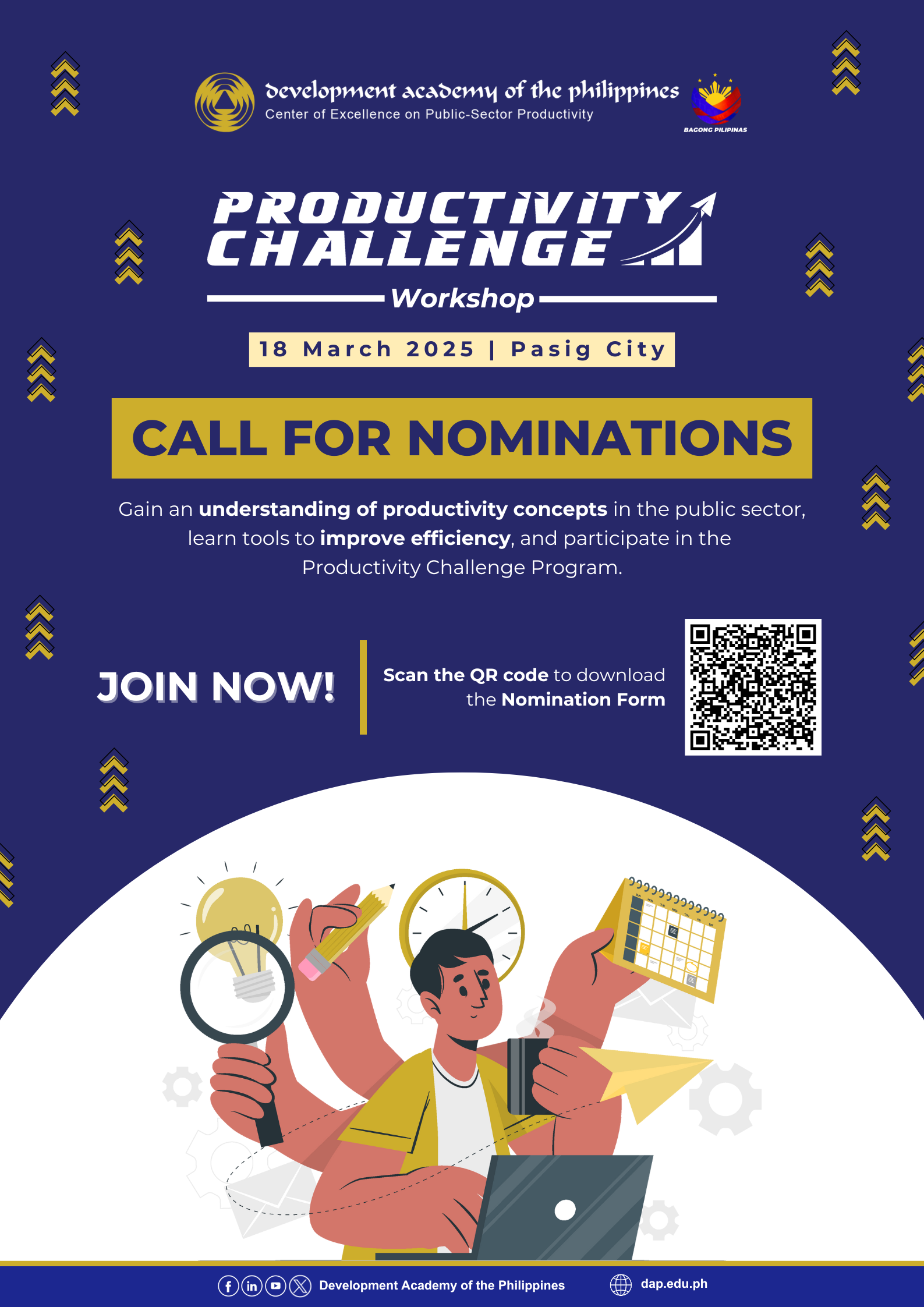
Eight cities – all aiming to improve the state of health in their respective localities – took a step towards that direction when they received certificates of completion symbolic of their having complied with the requirements of the Development Academy of the Philippines’ City Leadership and Governance Program or CLGP.
The cities are Batangas City and Cagayan de Oro City, both of which were sponsored by the United States Agency for International Development, and Cotabato City, Davao City, Pasay City, Puerto Princesa City, Quezon City and Zamboanga City, all of which went through the program under the aegis of the United Nations Children’s Fund.
The eight cities were feted during the CLGP Colloquium co-sponsored by the DAP and the Zuellig Family Foundation at the Heritage Hotel Manila in Pasay City last March 9.
The well-attended event, which was highlighted by the presentation of Zamboanga City Mayor Isabelle “Beng” Climaco-Salazar and Cagayan de Oro City Mayor Oscar Moreno, as well as that of the city health officers and city administrators, of the strides made by their cities in addressing health issues, was keynoted by Dr. Benjamin Lane, the team lead of Health Systems Strengthening Resilience of the World Health Organization-Philippines.
Great strides
Climaco, in her presentation, cited the great strides made by Zamboanga City with the efforts made towards addressing health problems particularly among the poor. This has been achieved by strengthening systems to improve the health of the city’s most vulnerable population.
Moreno, meanwhile, said that he was able to push through with his health programs despite opposition from his own council, having to resort to partnerships with the likes of the USAID just to implement such programs as Operation Bigay Tulong and free health checkups. The former trial lawyer proudly related that he was even able to provide Badjaos in his city a housing project with the determination that has marked the programs he has implemented.
Lane, in his keynote address, noted the power, leadership and ability of the mayors to have the influence to address the various health issues obtaining in their localities. He said that the sustainable development goals of 2030 make people realize that everything is interconnected.
“Urban health and urban health quality is significant since it is estimated that by 2030, two-thirds of the world would be urban,” he said. “Fifty percent of Filipinos now live in an urban setting and 28 percent are informal settlers. Hence, coping with this is a particular challenge for officials.”
Lane, however, said city officials and mayors know better than anybody else in addressing such issues while stressing that health facilities should be available to everybody.
Major element of HLGP
The CLGP is actually the major element in one of three components of the Health Leadership and Governance Program or HLGP, which was established on May 16, 2013 when the DOH and the Zuellig Family Foundation forged a partnership agreement to jointly implement the HLGP.
The program was an offshoot of the recognition by the DOH of the continuing existence of health inequities in the country despite economic and social improvements, including the absence of access by Filipino families, especially those from the poor sector, to quality and critical health services. This is when the DOH saw the need to constitute a leadership and governance program involving local chief executives from 609 priority municipalities and cities identified by the National Anti-Poverty Commission.

The DAP, through its Sustainable Human Development Program, has provided a platform for the CLGP, a one-and-a-half-year program composed of three modules that contain intervening practicum sessions. These sessions are designed to empower local chief executives or mayors, city health officers and other local leaders to develop their leadership and governance capabilities, thus becoming “bridging leaders” particularly in the area of health.
Also attending the colloquium were UNICEF country representative Lotta Sylwander; USAID mission director Dr. Susan Brems; David Zuellig of the Zuellig Family Foundation’s Board of Trustees and the foundation’s president, Prof. Ernesto Garilao; Department of Health Director Dr. Aristides Tan; and DAP Senior Vice President for Programs Magdalena Mendoza, who welcomed the participants.




